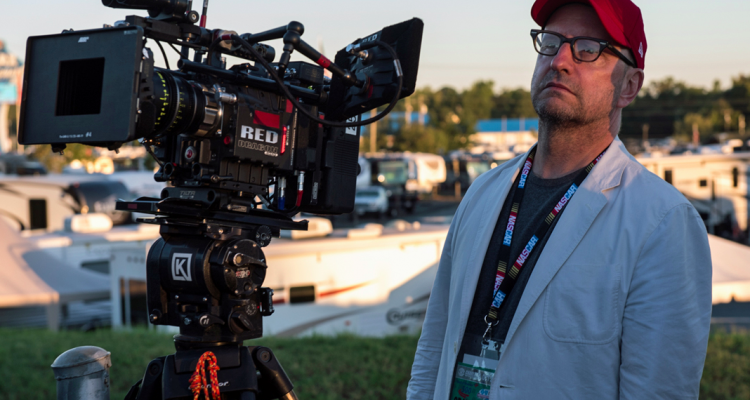This weekend, Steven Soderbergh return to cinemas with “Logan Lucky,” and few people showed up. It’s a real shame because not only are audiences missing one of the most purely enjoyable films of the summer, but for folks who are nerds about the technical side of things, it’s truly a wonder.
While the heist comedy might not seem like it, “Logan Lucky” is a showcase of masterful filmmaking by Soderbergh. It’s subtle stuff for the most part, but his decisions behind almost every shot highlight a canny knack for economy, and allowing the elements inside the frame to unfold the narrative. It should be no surprise to anyone following the director’s career, but as he explains in Film Comment, his approach to filmmaking is all about making sure every piece of the puzzle is necessary, and feeds into the next. Here’s an excerpt:
READ MORE: Steven Soderbergh Praises M. Night Shyamalan, Says ‘Che’ Soured Him On Prestige Pictures
A shot is a story. A shot on its own should be a piece of a story. Which is why I talk a lot about watching films, even the films we’re working on, with the sound off. Just to analyze how the film works, because a film should work for an audience without any sound. The biggest problem I see is that someone may have a superficial understanding of what a shot is propositionally, but they don’t have an understanding of how all of these shots are part of a family that needs to connect, and so you’ll get something that’s like a sentence arranged poorly with six nouns in a row. That surprises me, because I think that’s something that can be learned. Some things can’t be, but that can. It’s a grammar. In a classroom I could walk somebody through the difference between a sequence in which the filmmaker has a deep understanding of how images connect, and someone who doesn’t. It’s not really an intellectual process. Some people are just born with it and are just sort of savants at that deep mathematical understanding of shot construction.
I’m better than I used to be, but there are some people I’m just never going to catch.
[David Fincher]. [Steven] Spielberg. His staging ability. I’m never going to catch him. But when you’re trying to figure out how to get better—I’m not competitive in the sense of looking around at other filmmakers and comparing myself to them. What I do have to think about in trying to navigate myself through a career is: what can I get better at, and what do I have that I can enhance that somebody else doesn’t have?
It’s truly insightful stuff from Soderbergh who is still aiming to perfect his craft, while also pushing boundaries (such as in the upcoming “Mosaic“). Meanwhile, the next time we watch “Logan Lucky,” we might just throw it on mute.

